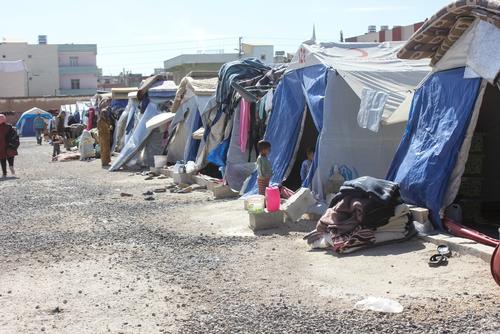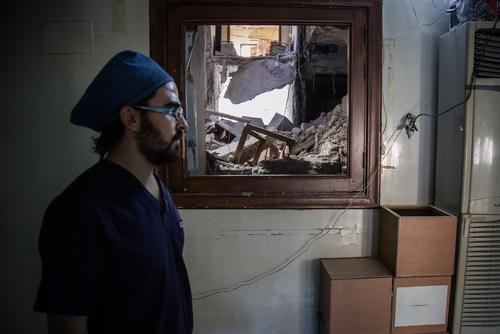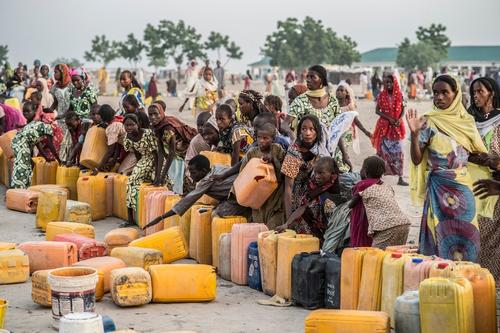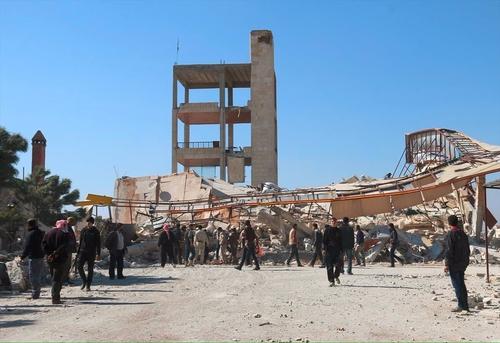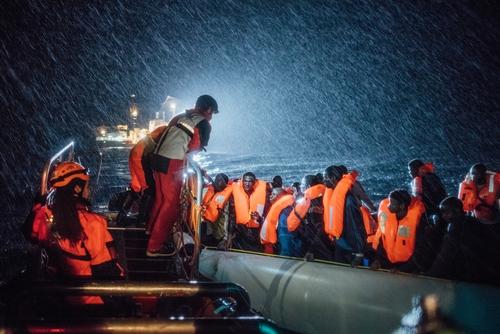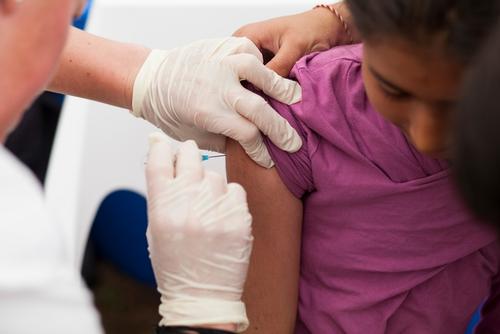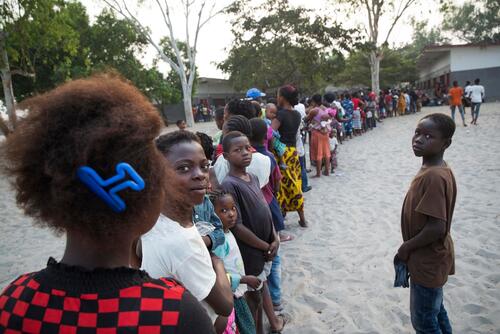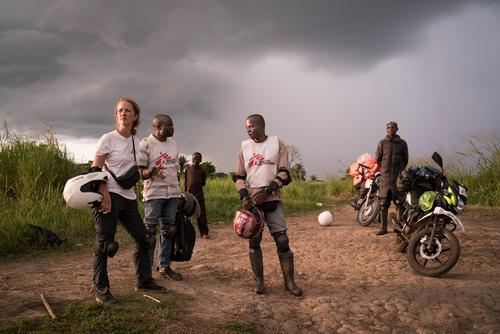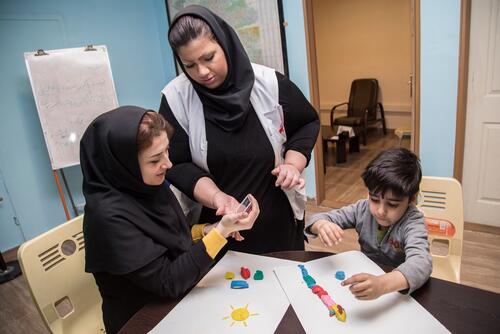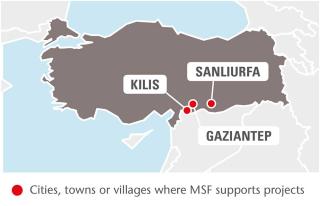
9,500
9,5
Around 90 per cent of Syrian refugees in Turkey live in precarious conditions outside camp settings with insufficient access to basic public services. Within this context, a failed coup attempt on 15 July and the political turmoil that continued under emergency law in the second half of the year pushed humanitarian concerns further down the political agenda.
Although its authorisation to work in the country expired in June, MSF continued to provide financial and technical support to local NGOs working on the Syrian-Turkish border. Teams in Turkey also gave remote support to medical staff in Syria.
Kilis
MSF worked with partners to offer primary healthcare and psychosocial support to Syrian refugees. In 2016, 1,354 individuals and 810 families received counselling consultations were conducted, and 1,354 individuals and 810 families received psychotherapy consultations. The number of sexual and gender-based violence-related patients dramatically increased in 2016.
Sanliurfa
An MSF-supported local partner organisation conducted 1,341 individual and 69 group counselling sessions in Sanliurfa. MSF supported another local NGO’s psychosocial support programme in Akçakale, which provided 2,554 individual consultations. Until the closure of Akçakale transit camp in May 2016, MSF also helped with primary healthcare services, psychosocial care, water and sanitation and provided relief items.
Gaziantep
MSF collaborated with an international medical humanitarian organisation to provide treatment to Syrian refugees in the Voluntary Health Centre for People under Temporary Protection, which offered paediatric and sexual and reproductive health (SRH) consultations. MSF concluded its activities in April 2016, having carried out SRH consultations with more than 2,500 women.



